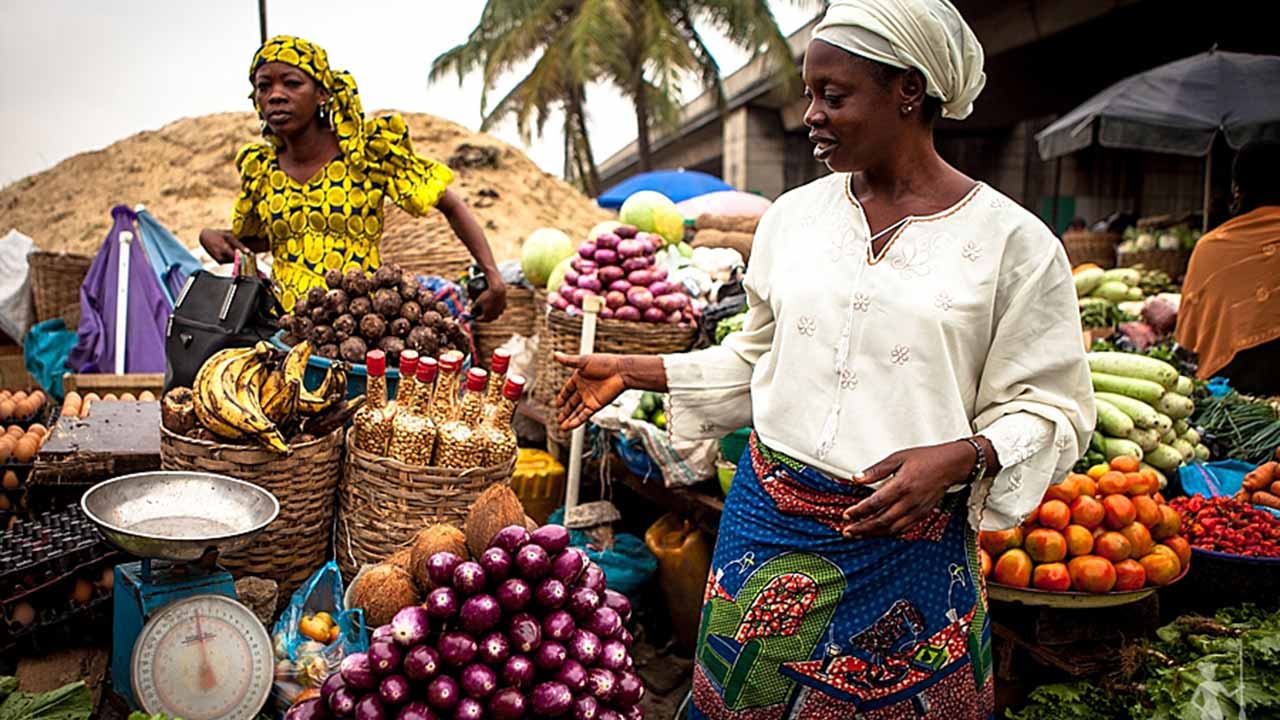Nigeria’s Inflation Figures Could Be Misleading As Food Prices Continue To Rise Due To Border Closure

Everyone was caught out when Nigeria shutdown (or partially closed) its borders in two regions last month, and without prior warning.
The word from the Office of the National Security Adviser (NSA) was that the border the closures were measures aimed at curbing insecurity and entry of contraband into the country.
One of the biggest “contrabands” at the moment is rice; a popular staple in Nigeria. And the partial closure of the country’s busiest border, the Seme Border, was especially targeted at stopping “foreign rice” from getting into the country.
And that’s mostly because the government believes the country is producing more than enough rice locally — though it’s kind of a different story in the market currently.
Indeed, early this year, Nigeria’s former Agriculture and Rural Development Minister, Audu Ogbe, said the country had attained 90 percent rice production.
The former Minister said the country had moved from being a major importer of rice to being self-sufficient. According to him, not only is the country now able to feed itself, but it also has all it takes to become a major player in agricultural export to other countries.
Echoing the thoughts of Ogbeh, the Rice Farmers Association (RIFAN) recently stated that the country had attained a yearly production of eight million metric tonnes of rice, with a target of 18 million metric tonnes by 2023.
So, Where Did All The Food Go?
The Comptroller-General of Nigeria Customs Service (NCS), retired Col. Hameed Ali, recently stated that the Nigerian government closed its borders in order to protect its economic interests, amongst other pressing issues.
He also said the intention is not to hurt anyone but to promote the consumption of locally-produced goods.
Of course, these are very good intentions but the story in the market doesn’t quite add up. Even though the most recent data from the National Bureau of Statistics did show that inflation dropped to 11.02 percent in August, those figures seem to contrast what is really happening in the local markets.
Making an example out of rice, prices have only gone up since the government said to prevent rice produced in other countries from coming in.
WeeTracker visited the popular Ajah Market in Lagos and found that a bag of Nigerian rice that used to go for between NGN 13 K to NGN 15 K (depending on the brand), is now sold for NGN 17 K and NGN 20 K.
A “Painter of rice” which used to be sold for around NGN 1.4 K is now going for NGN 1.8 K.
Foreign rice, which most of the buyers say is unavailable, now sells for as high as NGN 23 K, though many sellers are convinced that just Nigerian rice in a foreign bag.
It’s pretty much the same story for poultry products and even seafood whose prices have all shot up. And the sellers are all unanimous in their claim that prices have gone up because the goods are in short supply.
One Eunice Okoli, a rice seller at the Ajah Market, told WeeTracker that her suppliers are charging her a lot higher for the product, and that’s when she can even find it.
“Rice no dey market, everything don cost,” she says in Nigerian pidgin, before proceeding to show a piece of crumpled paper on which she wrote the prices of her most recent purchases.
What Is Really Happening?
Actually, food prices were stable and much cheaper than they are now before the border closure happened. And the measure appears to be causing more harm than good.
Was the government mistaken about Nigeria’s newfound sufficiency in the production of rice, for instance? Maybe not. But things are certainly not working out at the moment as high demand and low supply continue to drive prices upwards.
The Nation spoke to the National Vice President of Rice Farmers Association (RIFAN), Segun Atho, who explained that there was no scarcity of rice. He even added that farmers are growing rice almost four times yearly and there is a surplus.
Asked why the price is high, he said: “I will not speak on that. What I am sure of is that there is rice in the country. Let us be patient with ourselves.”
For now, it’s either suppliers are hoarding/rationing the produce to cause artificial scarcity and drive prices upwards or everyone overestimated Nigeria’s production scarcity.
That’s because, at the moment, it’s becoming increasingly hard to get hold of this “phantom rice” that is supposedly aplenty. And things are getting a lot more difficult for the millions of Nigerian households that depend on the staple.
Featured Image Courtesy: LeadershipNG